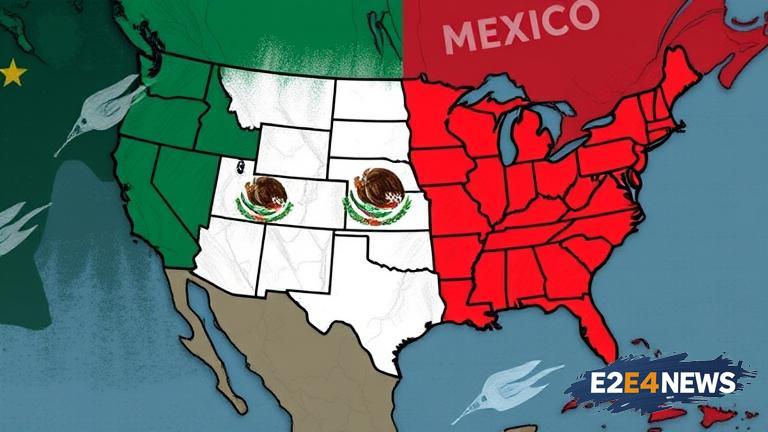A recent outbreak of screwworms has prompted Mexico and the US to collaborate on efforts to control the spread of the parasite. The screwworm, also known as Cochliomyia hominivorax, is a fly that lays its eggs in the wounds of mammals, including livestock. The larvae then feed on the flesh of the host, causing significant damage and potentially leading to death. The outbreak has been reported in several states in Mexico, including Chihuahua, Coahuila, and Durango, as well as in the US states of Texas, New Mexico, and Arizona. The Mexican government has implemented measures to control the outbreak, including the distribution of insecticides and the establishment of a quarantine zone. The US Department of Agriculture has also been working with Mexican authorities to provide support and guidance on controlling the outbreak. The collaboration between the two countries is seen as crucial in preventing the spread of the parasite and minimizing the economic impact on the livestock industry. The screwworm outbreak has significant implications for the livestock industry, as it can cause significant losses in terms of animal deaths and reduced productivity. The parasite can also have a significant impact on human health, as it can infect people who come into contact with infected animals. The US and Mexico have a long history of cooperation on animal health issues, and the current collaboration on the screwworm outbreak is seen as an example of this cooperation. The use of insecticides and other control measures has been effective in reducing the spread of the parasite, but more work is needed to fully eradicate the outbreak. The Mexican government has also been working to educate farmers and livestock producers on the risks associated with the screwworm and the measures that can be taken to prevent its spread. The US Department of Agriculture has also been providing support to farmers and livestock producers in the affected areas, including guidance on biosecurity measures and the use of insecticides. The collaboration between the two countries is expected to continue, with regular meetings and updates on the progress of the control efforts. The screwworm outbreak has highlighted the importance of cooperation between countries on animal health issues, and the need for continued vigilance and monitoring to prevent the spread of diseases. The economic impact of the outbreak is still being assessed, but it is expected to be significant, with potential losses in the millions of dollars. The US and Mexico are committed to working together to control the outbreak and prevent its spread, and the collaboration is seen as a model for future cooperation on animal health issues.
